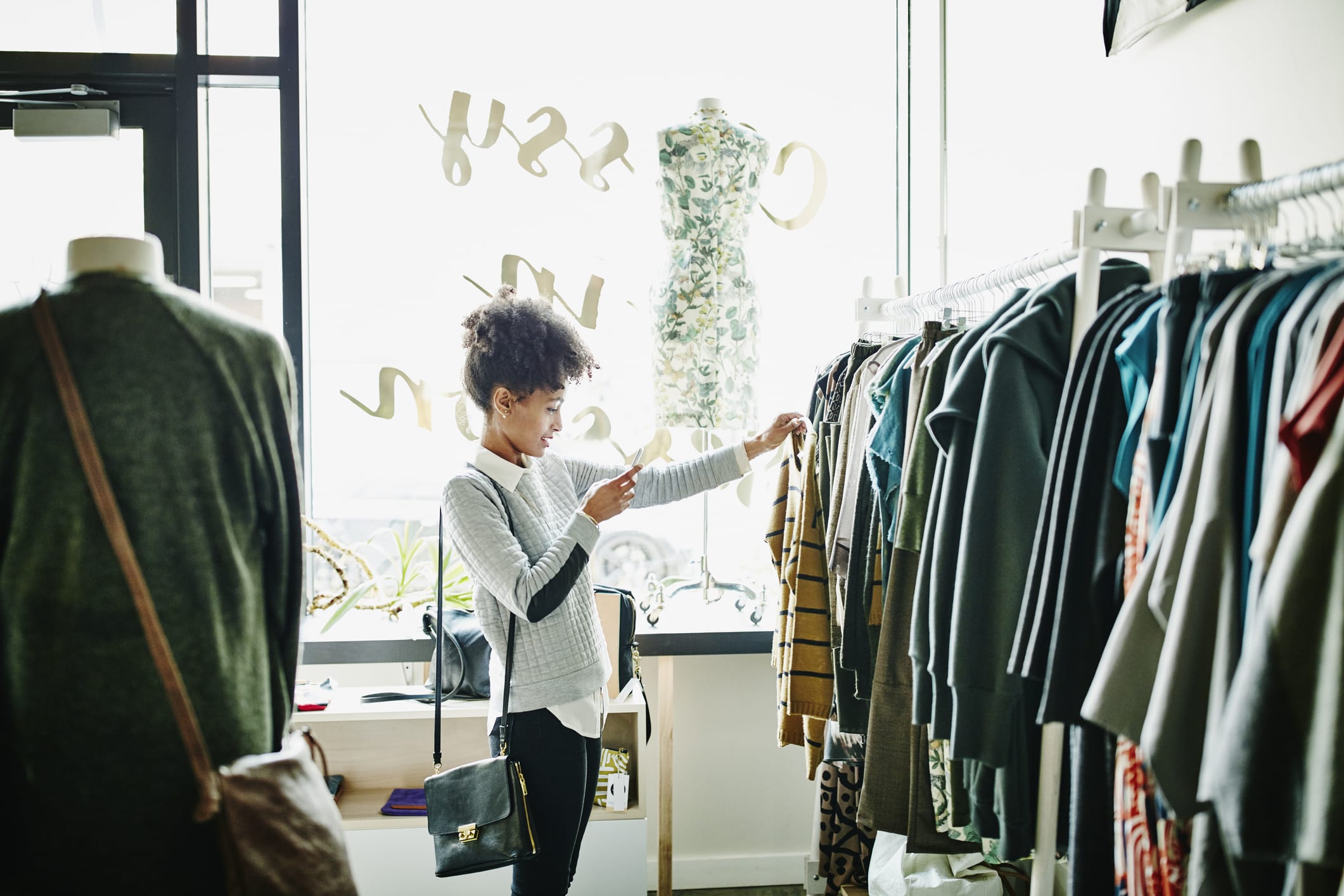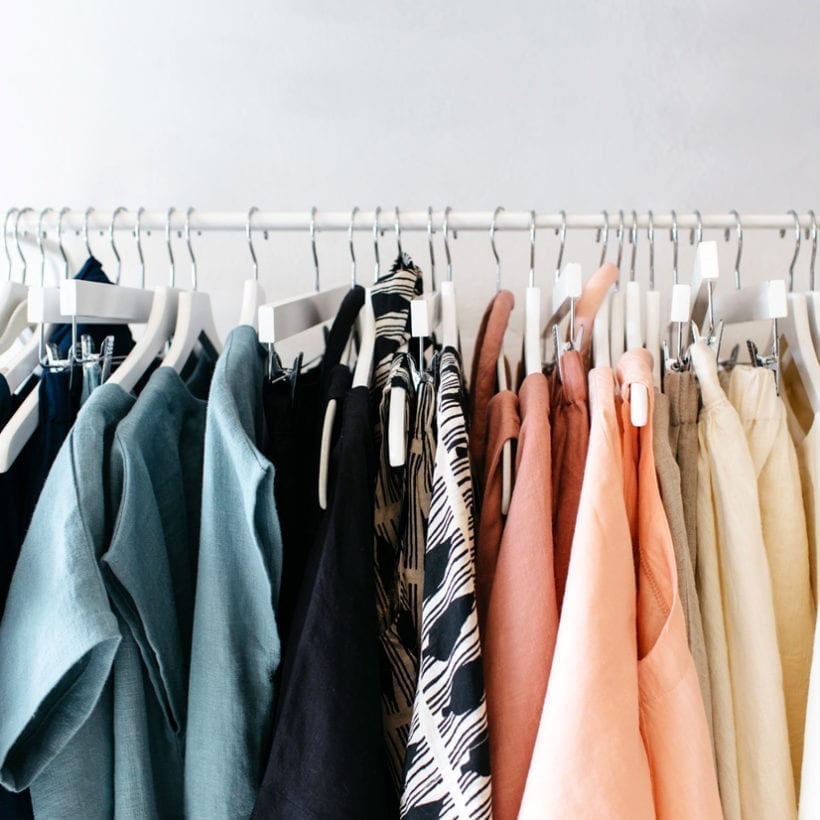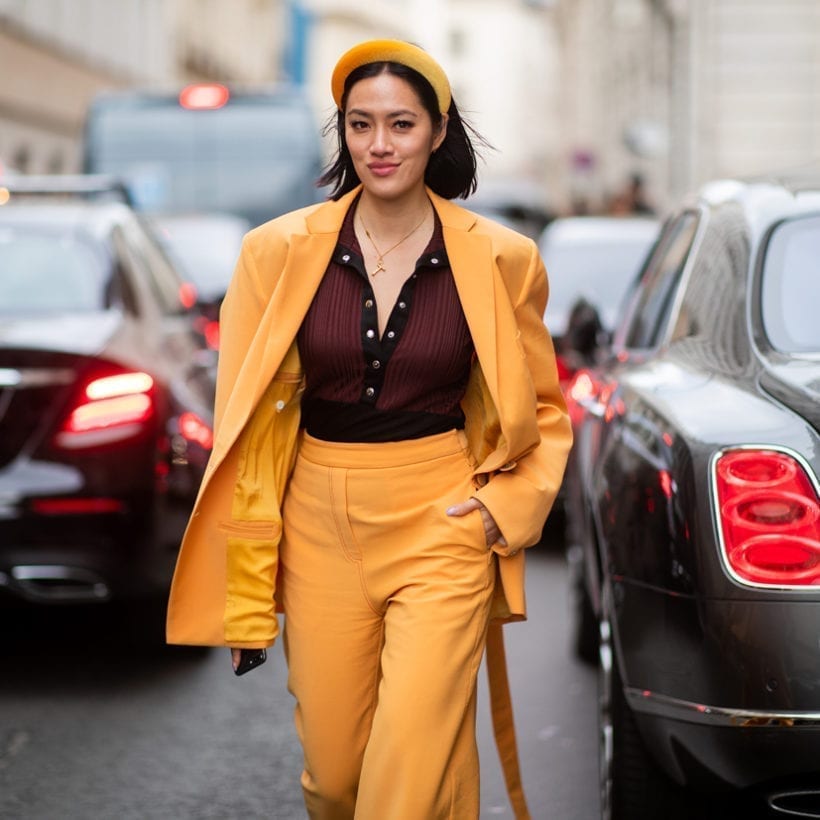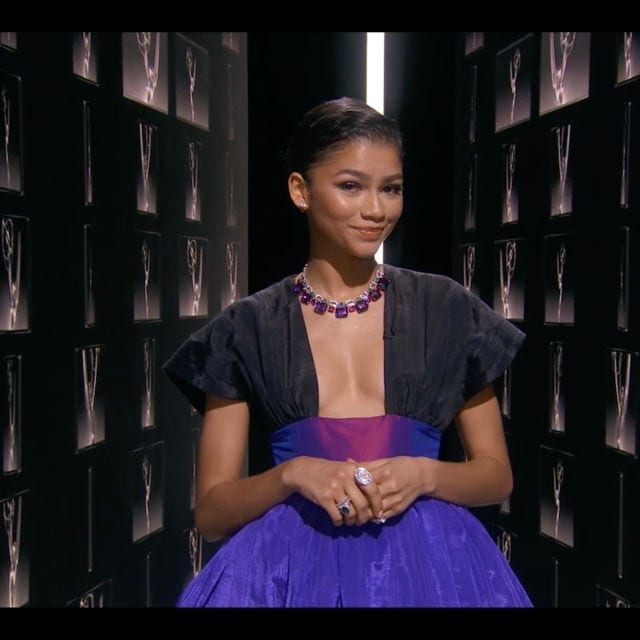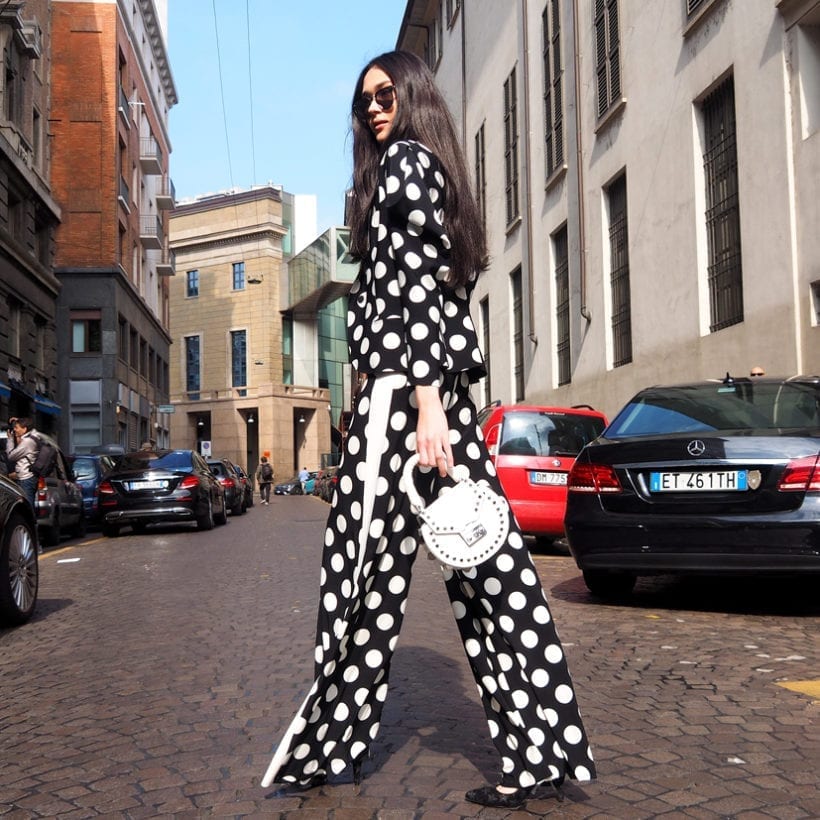“When you look good, you feel good.” “Dress for the job you want, not the job you have.”
There are so many cliche (but true) quotes that draw a connection between the way we dress and the lives we wish to live. Pre-pandemic, most people knew me as someone who loves dressing in bright, bold colors and fabrics. After seeing myself in dull grey sweats for the millionth time during the pandemic, I vowed to change that, and ever since, I made small steps to dress for my best life, even if it meant pairing my cozy sweats with tops, accessories, and shoes that were outlandish but made me happy. Fun fact: between October 2019 and October 2020, Pinterest analytics showed terms like “elegant loungewear”, “curvy athleisure outfits,” increase by five times and “how to style sweatpants” increase by ten times.
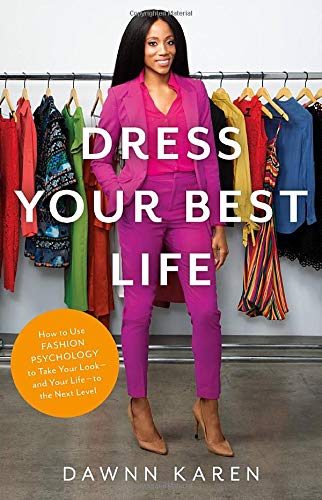
Around the time of this epiphany, I began reading Dress Your Best Life: How to Use Fashion Psychology to Take Your Look — and Your Life — to the Next Level by Fashion Psychologist Dr. Dawnn Karen, and everything began to make sense. Clothes were my armor, and I was ready to feel bulletproof again.
While studying Psychology at Columbia by day and taking on the Big Apple as a fashion model by night, Dr. Dawnn Karen was inspired to merge two worlds that look vastly different. Drawing from her own experiences, using her love of fashion to heal from traumatic experiences and growing pains, Dr. Dawnn Karen began pioneering an industry that didn’t exist but had lots of untapped potentials — Fashion Psychology. Today, she is not only looking to use fashion to channel her highest self, but she’s also encouraging others to do the same. From client consultations to traveling the world sharing her story and fashionable psychology findings, Dr. Dawnn Karen is looking to transform the world, one wardrobe at a time.
What is Fashion Psychology?
Dr. Dawnn Karen: Fashion Psychology is the study and treatment of how color, beauty, style, image, and shape affect human behavior while addressing cultural sensitivities and cultural norms (as persons racial-ethnic background should be considered in therapy even when it’s fashion related). Around 2008, I said I wanted to be referred to as Dr., and by 2018, I was dubbed as the “Dress Doctor” by the New York Times. I’m very proud of that title. Unfortunately, I can’t receive a Ph.D. from an academic institution in a field that I created, essentially, so it didn’t come by the traditional route. I’m also very proud of becoming the first Black female and one of the youngest Psychology professors at FIT.
From the outside looking in, fashion and psychology are two different worlds. What encouraged you to explore both of these interests, and what impact you hope to make on the fields?
Dr. Dawnn Karen: If you watch my TED Talk titled Styling From The Inside Out, I talk about how I experienced something traumatic, and my coping response was not to necessarily air my dirty laundry or engage in talk therapy. My initial reaction was to dress my pain — dress my pain by expressing my pain through clothing. I gained a sense of equilibrium and control by [channeling the energy into my outer appearance].
I thought to myself, “I wonder if there are others who, like myself, would be interested in alternative therapy treatment?”. That is essentially how my journey as a fashion psychologist started. The impact that I hope to have (and that I am currently having) is pushing people to no longer see fashion as something superficial. Our clothing speaks what we fail to say with words.
Can my clothes make me feel better?
The simple answer is yes! She breaks dressing for your mood down into two Fashion Psychology philosophies.
Mood Illustration Dress: When you dress to honor or match your current mood. Think of throwing on your most comfortable pair of sweatpants when you’re in a calm, relaxing mood.
Mood Enhancement Dress: When you use your clothes to elevate or optimize your emotional state, aka, cheer yourself up. Think of throwing on your best outfit for a job interview that you may be super nervous about.
Dr. Dawnn Karen: “You can lie in bed and ask yourself one question, “How am I feeling?” and then dress to perpetuate that feeling or enhance that feeling [with something as small as an accessory]. “Do a self-reflection—this doesn’t have to be laborious. By doing so, you will create authenticity in how you express yourself. You will create an alignment between the attitude and the attire or the internal and the external”.
What is the spectrum of pandemic fashion and what can one’s outfit choice tell you about their mental state?
Dr. Dawnn Karen: Generally speaking, if someone’s wearing big comfy sweaters, perhaps they suffer from a lack of socialization or anxiety. The comfortable sweater soothes them.
If someone is dressing up, this is someone that needs the motivation to work from home. If they’re dressing up from head to toe, specifically, they need more motivation to work from home, and they actually would prefer to be in an office. Those who only partially dress up are more likely the hybrid person that wouldn’t mind going to the office, but they could work from home when needed.
How did you change your wardrobe during 2020?
Dr. Dawnn Karen: I usually wear heels 365 — I had to change my wardrobe because I wasn’t leaving the house. I’ve adopted various house shoes or slippers that are colorful to indicate my mood. I have leopard, fuzzy pink (I call them my bunny slippers), and even some that I call “dinosaur” slippers.
I also have adopted wearing kimono robes. They make me feel elegant and regal around my home and very feminine — I needed that. On my head, I’m wearing slap caps, which are head wraps that I like wearing indoors. On the rare occasion that I go out, I’m dressed to the nines because I don’t get many chances to dress up these days. When I’m dressed up, I love wearing flamboyant masks, including leopard, of course. I have all different types of masks, and I match them with my outfits.
What is your favorite outfit for WFH?
Dr. Dawnn Karen: Believe it or not, my men’s robe with my black slip dress underneath is my favorite. It makes me feel comfy — the terry cloth feel swallows me, and I love the feeling. So whenever I need a hug or lack companionship, I wear this robe around my home with little slip dresses underneath.
In your book, Dress Your Best Life, you talked about not enjoying brick and mortar shopping due to microaggressions referencing SZA’s 2019 Sephora incident. What advice can you give retailers to make shopping more welcoming of people of color?
Dr. Dawnn Karen: Research shows it takes only seven seconds to formulate a first impression. But I want others to realize that their first impressions could also be erroneous. You could see someone in [Timberland boots], Converses or a hoodie, and you automatically stereotype them as being from a certain socio-economic status or incompetent, etc. That first impression is likely false — know this when encountering people of color, especially Black women. Don’t pass judgment based on stereotypes.
What is your advice for someone who feels that their current wardrobe isn’t a true reflection of them but doesn’t necessarily have the resources to rebuild a new closet from scratch?
Dr. Dawnn Karen: Remix your closet and create a capsule wardrobe. It’s all about how you wear your clothing. Mix and match colors, styles, and fabrics that you normally wouldn’t. Feel free to cut, tie-dye, etc., to recreate a wardrobe from what you already have.
If I were to focus on the internal, I would urge you to ask yourself:
- Why are those clothes not resonating?
- Do the pieces remind you of a past occurrence that may have affected you negatively?
- Why is the clothing no longer speaking to you?
Get to the root of the problem first.
What I’ve learned from the book about online shopping
Reading her book, I was able to answer some of my pressing questions regarding my emotional relationship with clothes and shopping, specifically in the middle of a pandemic. You might have been drawn to online shopping with us spending more time at home even if it wasn’t something you enjoyed pre-pandemic.
Dr. Dawnn Karen puts into perspective some healthy ways to approach online shopping and shopping in general. Here are some of the best tips that I’ve been actively practicing.
Check-in with yourself.
Like many people, I’ve found myself shopping a lot in my spare time, buying things that I can’t wear anywhere but inside the house. I took Dr. Dawnn Karen’s advice and began to look inward to understand why I was making these shopping decisions. It turns out, with all the anxiety of being in a pandemic with no clear ending, shopping was one thing in my life that I felt in control of.
Some questions that Dr. Dawnn Karen recommends are:
- How do you feel when you shop? Cool, calm, and collected or euphoric anxious and guilty?
- Have you sworn to stop shopping for an allotted amount of time and failed?
- Do your favorite Instagram fashion and style influencers inspire you or shine a light on your insecurities?
Don’t autosave your credit card information.
While autosaving info may seem like it’s saving you time, it may be pushing to spend money that you don’t necessarily have on items that you don’t need. Take your time while making purchasing decisions.
Always go for quality versus quantity.
With so many trendy items out there that you can purchase for relatively cheap, it’s easy to add a ton of short-lived pieces into your wardrobe. Instead of buying a ton of trendy items that may not even survive a few washes, invest in quality pieces that will last. Focus on collecting essential or staple items that you love, fit you well, and can be worn for multiple seasons.
Prepare yourself to get rid of old items when welcoming new ones into your wardrobe.
As the saying goes, “out with the old and in with the new.” If items in your closet no longer fit or serve you, don’t be afraid to let them go. Find them a home where they are loved and will get the attention they deserve.
Dr. Dawnn Karen’s book Dress Your Best Life is now available in four different languages: Russian, Spanish, English, and Czech. Additionally, if you’re looking for alternative therapy by way of your wardrobe, Dr. Dawnn Karen is currently accepting clients and is offering certifications to those looking to explore Fashion Psychology.
We only recommend products we have independently researched, tested, and loved. If you purchase a product found through our links, Sunday Edit may earn an affiliate commission.
